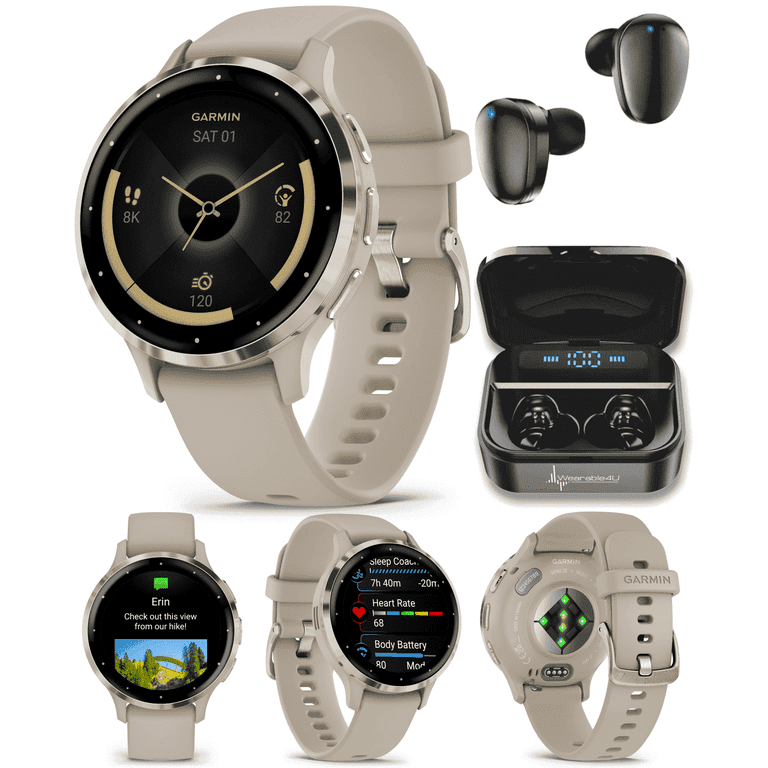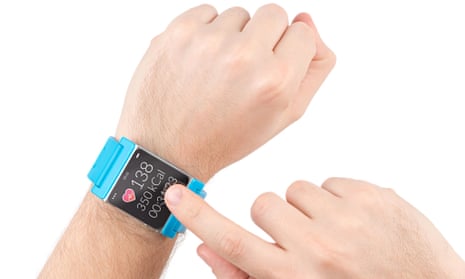Are Smartwatches Bad for Your Health? Discover Risks
Imagine glancing at your wrist to check your heart rate or track your steps, all through a sleek, compact device. Sounds convenient, right?
But have you ever paused to wonder if your smartwatch could be doing more harm than good to your health? You’re not alone. Many are pondering whether these trendy gadgets are more than just helpful tools. Are they silently impacting your well-being?
We’ll dive into the debate, exploring the hidden effects smartwatches might have on your health. From potential radiation exposure to sleep disturbances, you’ll uncover the surprising truths that could change the way you view your wrist-worn tech. Stay with us as we unravel the real story behind smartwatches and your health. You might find some unexpected insights that could influence your next tech purchase.

Credit: www.shieldyourbody.com
Radiation Concerns
Concerns about radiation from smartwatches focus on potential health risks. These devices emit low levels of electromagnetic fields. Researchers continue to study their long-term effects on the human body.
Smartwatches have become an essential part of our daily lives, blending convenience with technology right on your wrist. But have you ever paused to consider the health implications, specifically the radiation emitted from these devices? As wearable technology becomes more prevalent, concerns about radiation exposure have surfaced. Understanding how these devices affect your health can guide you to make informed decisions. Let’s delve into the radiation concerns surrounding smartwatches and what you should be aware of.Electromagnetic Fields
Smartwatches, like other wireless devices, emit electromagnetic fields (EMFs). These fields are a type of radiation that comes from the electronic components within your watch. Think about how often you wear your smartwatch—perhaps during workouts, at work, or even while sleeping. The constant exposure to EMFs can be a cause for concern. While scientific research is ongoing, some studies suggest that prolonged exposure to EMFs may have health implications. It’s essential to keep informed and consider how often you use your device.Comparisons With Other Devices
How do smartwatches stack up against other devices in terms of radiation? Compared to your smartphone, the radiation levels from smartwatches are significantly lower. However, the proximity to your skin and constant use make them a unique concern. Consider your smartphone. You don’t typically keep it pressed against your body all day. Your smartwatch, on the other hand, is often in direct contact with your skin. This raises questions about long-term exposure and its effects. Have you thought about how you use other devices in your daily life? Being mindful of how you use technology can help mitigate potential risks. Taking breaks from constant wear or switching wrists can be simple steps to reduce exposure. Do you worry about the radiation from your smartwatch? Understanding the risks and taking practical steps can help you use technology safely and effectively. Remember, staying informed is the best defense against potential health risks.Impact On Sleep
Smartwatches have become a popular accessory in recent years. Many people wear them day and night. But their impact on sleep raises concerns. Some believe smartwatches might disrupt sleep patterns. Understanding their effects can help you make informed choices.
Blue Light Emission
Smartwatches emit blue light from their screens. This light can affect your sleep. Blue light can interfere with your body’s natural sleep signals. It tricks your brain into thinking it’s daytime. This can make falling asleep harder at night.
Limiting screen time before bed can help. Some smartwatches have a night mode feature. This reduces blue light emission. Activating this feature may improve sleep quality. Consider using it in the evening.
Sleep Cycle Disruption
Smartwatches can track your sleep patterns. They monitor movement and heart rate. But wearing a smartwatch can disturb your sleep cycles. Vibrations and alerts can wake you up unexpectedly. This interrupts deep sleep stages, affecting rest.
To prevent sleep cycle disruption, turn off notifications. You might also remove the watch at bedtime. Allow your body to rest naturally. Prioritize a calm and tech-free sleep environment.
Skin Issues
Smartwatches are popular for tracking fitness and staying connected. But they can cause skin issues. Many users report rashes or irritation after wearing them. These problems vary based on skin type and watch material.
Allergic Reactions
Some people experience allergic reactions to smartwatches. Nickel and other metals in the watch can cause this. Users with sensitive skin are more at risk. Redness, itching, and bumps are common symptoms. If you notice these signs, it might be an allergy.
Hygiene And Skin Health
Smartwatches need regular cleaning. Sweat, dirt, and bacteria can build up on them. This can lead to skin irritation or infection. Clean your smartwatch with a soft cloth and mild soap. Dry your wrist before wearing it again.
Wearing a smartwatch too tight can also harm skin health. It may block air circulation, trapping moisture. This can cause irritation or rashes. Adjust your watch strap to fit comfortably. Let your skin breathe to avoid issues.

Credit: www.walmart.com
Mental Health Effects
Smartwatches might impact mental health due to constant notifications, leading to stress and anxiety. Continuous tracking can also create pressure, causing people to feel overwhelmed. Balancing smartwatch usage is essential for mental well-being.
Smartwatches have revolutionized how we stay connected and monitor our health. However, they also bring potential mental health effects. While these devices offer convenience, they may impact your mental well-being in unexpected ways. Let’s look deeper into these effects, especially focusing on anxiety and the importance of a digital detox.Anxiety And Over-reliance
Imagine this: your smartwatch buzzes again, reminding you of yet another notification. It’s easy to become anxious as your wrist becomes a constant source of alerts. This over-reliance can make you feel like you’re always “on,” leading to stress and anxiety. Have you ever felt the itch to check your watch even when you haven’t felt a vibration? You’re not alone. This habit can create unnecessary anxiety, making you feel like you’re missing out if you’re not constantly monitoring your device. Consider setting boundaries with your smartwatch. Limit notifications to essentials, and carve out tech-free times in your day to ease the pressure.Digital Detox Importance
Taking a break from technology can work wonders for your mental health. A digital detox allows your mind to reset, helping you reconnect with the world around you. Ask yourself: when was the last time you went for a walk without your smartwatch tracking every step? Embrace moments without digital interruptions to recharge mentally. Try allocating specific times in your day where you disconnect from your smartwatch. Use this time to engage in activities that promote relaxation, like reading or meditating. By being mindful of your smartwatch usage, you can better manage its impact on your mental health. How will you balance the benefits of technology with your need for mental well-being?Potential For Inaccurate Data
Smartwatches are popular for tracking health and fitness data. But are they always accurate? Many users rely on these devices for health insights. The potential for inaccurate data is a genuine concern. Faulty readings can lead to misunderstandings about one’s health. This can affect decisions about exercise or medical care. Let’s delve into specific areas where inaccuracies can arise.
Heart Rate Monitoring
Heart rate monitoring is a key feature in smartwatches. These devices use sensors to measure your pulse. Unfortunately, they can be inaccurate at times. Movement or improper fit can skew results. This might give you false heart rate readings. Some users might experience discrepancies during workouts. Knowing your true heart rate is vital for effective exercise planning.
Fitness Tracking Errors
Smartwatches track various fitness metrics. Steps, calories, and distance are commonly monitored. These metrics can sometimes be incorrect. Walking style or wrist movement affects step count accuracy. Calorie estimates may not consider individual metabolism differences. Distance calculations depend on GPS quality. Errors in fitness tracking can mislead users about their activity levels.
Long-term Usage Concerns
Smartwatches have become a staple in our daily lives, offering convenience and connectivity right on our wrists. Yet, as their popularity grows, concerns about their long-term health implications are surfacing. How might these devices affect you over years of use?
Research Limitations
Many studies on smartwatch health impacts are still in their infancy. Most focus on short-term effects, leaving a gap in understanding long-term consequences.
Researchers often face challenges in tracking long-term users over extended periods. Technological advancements and evolving smartwatch designs make consistent data collection difficult.
Given these limitations, it’s crucial to approach any claims with caution. Think about how much you rely on your smartwatch and whether it might be influencing your habits in subtle ways.
Future Health Implications
We are only beginning to understand how prolonged exposure to digital screens affects mental well-being. Could constant notifications heighten stress levels over time?
There is also the question of electromagnetic fields (EMFs) emitted by smartwatches. While current evidence doesn’t show immediate harm, what about in a decade or two?
Consider how your smartwatch usage might change in the future. As more features are added, the time you spend interacting with it could increase, potentially affecting your physical activity and social interactions.
These insights beg the question: How do you balance the benefits and potential risks of wearing a smartwatch daily? It’s something to ponder as technology continues to evolve at lightning speed.

Credit: www.theguardian.com
Frequently Asked Questions
Do Smartwatches Emit Harmful Radiation?
Smartwatches emit low-frequency radiation, similar to cell phones. This radiation is generally considered non-ionizing and safe. However, prolonged exposure should be minimized. It’s always a good idea to consult health guidelines and use wearable devices responsibly to ensure safety.
Can Smartwatches Affect Sleep Quality?
Smartwatches can impact sleep quality if used excessively before bedtime. The blue light emitted can disrupt melatonin production. It’s advisable to minimize screen time before sleep. Utilize night mode or dim the display to reduce potential sleep disturbances.
Are Smartwatches Safe For Children?
Smartwatches are generally safe for children but require monitoring. Parents should ensure age-appropriate usage and limit screen time. It’s important to choose devices specifically designed for children. Regular breaks from screen time can help maintain healthy habits.
Do Smartwatches Track Health Accurately?
Smartwatches offer health tracking features, but accuracy varies. They can provide useful insights but shouldn’t replace medical devices. For precise health monitoring, consult a healthcare professional. Smartwatches are great for general activity tracking and motivation.
Conclusion
Smartwatches offer convenience but may raise health concerns. Radiation exposure and sleep disturbances are potential risks. Some users experience stress from constant notifications. On the flip side, fitness tracking can boost health awareness. Balance is key. Limit screen time and notifications.
Listen to your body’s signals. Consult a doctor if unsure. Technology should aid, not harm. Smart use can lead to benefits. Make informed choices. Health is personal. Consider your lifestyle needs and preferences. Research and understand both sides. Stay informed and proactive.
